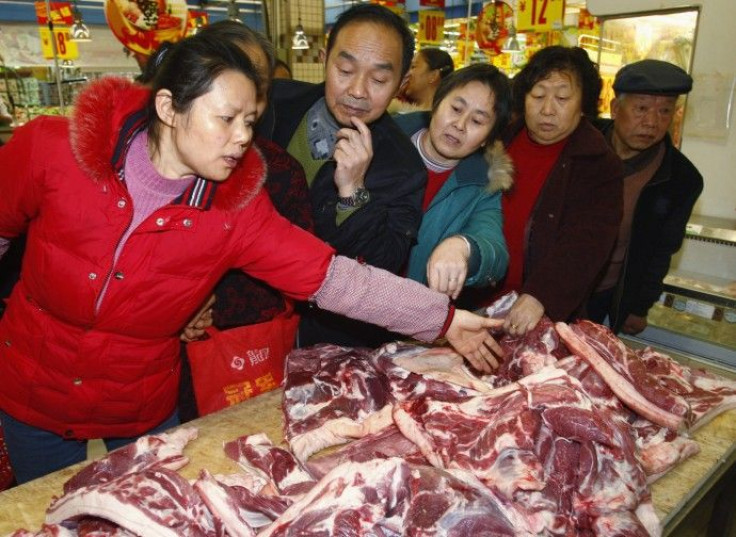China's inflation picks up in problematic areas

China's inflation for November surged to a 28-month high, rising 5.1 percent year-on-year.
Moreover, the inflation was driven by the country's problem areas.
Food inflation accelerated to 11.7 percent year-on-year.
The average Chinese family spends one-third of its income on food, according to the National Bureau of Statistics calculations. Poor families may spend up to half of their income on it.
Therefore, the rapidly rising prices severely burden poor people and can spark civil unrest if too many of them can't afford food.
In response to rising food costs, the government is rolling out price controls and auctioning off state supplies of certain grains.
Another cause for concern is the spike in producer prices for manufactured goods.
The producer prices for means of production went up by 6.9 percent year-on-year in November, of which that for mining and quarrying industry grew by 14.6 percent [and] raw materials industry went up by 9.8 percent, reported the National Bureau of Statistics.
China bears -- those who believe the country's economy is highly problematic -- allege that many businesses in China are high volume and low margin, meaning they are barely profitable or are already losing money.
Furthermore, some of them are not surviving on natural market demand but are instead propped up by various government subsidies.
Therefore, persistent inflationary pressures threaten their razor-thin (or negative) profit margins.
To combat inflation, the Chinese government has been restricting bank loans, raising bank reserve ratios, and recently raising interest rates for the first time since 2007.
As the government tightens monetary policy (and continues to do so in 2011), it will likely succeed to some degree in easing inflationary pressures. However, these very same measures will take away state support for many companies that are allegedly barely profitable or already unprofitable.
Financial pressures on these companies, or even on the local governments that support them, can trigger job losses and a slowing of China's economic growth.
Email Hao Li at hao.li@ibtimes.com
© Copyright IBTimes 2024. All rights reserved.











